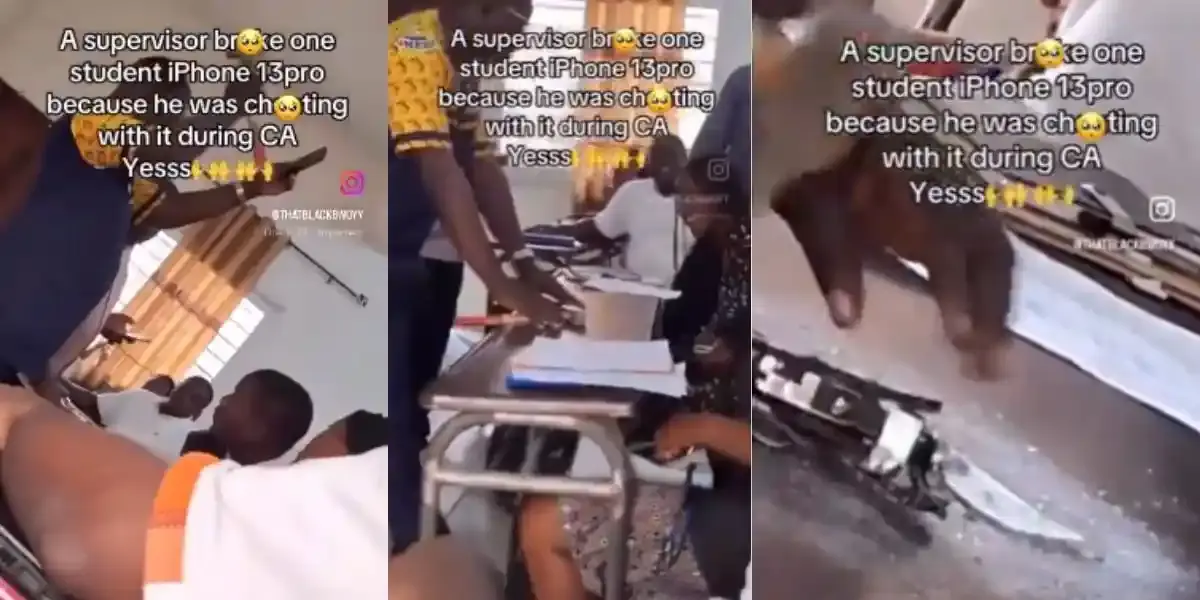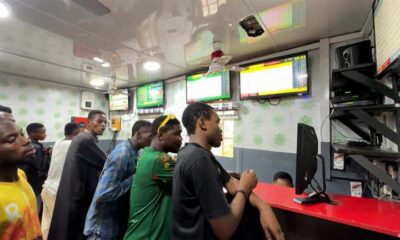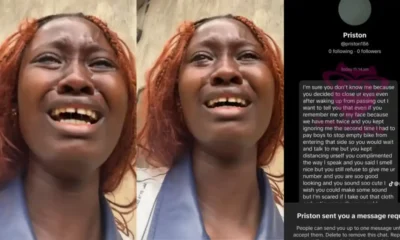Entertainment
Lecturer Smashes Student’s iPhone 13 Pro Over Exam Malpractice in Viral Video
A Nigerian lecturer sparked debate online after smashing a student’s iPhone 13 Pro for cheating during a test.

A Nigerian lecturer sparked debate online after smashing a student’s iPhone 13 Pro for cheating during a test.
A viral video making rounds on social media has sparked intense debate after a Nigerian lecturer was seen destroying a student’s iPhone 13 Pro, allegedly worth over N600,000, for cheating during a test.
The shocking clip shows the lecturer, who was supervising a Continuous Assessment (CA) test at an unnamed Nigerian higher institution, pulling out a hammer and smashing the student’s phone to pieces in front of the class.

Overlay text in the video reads: “A supervisor broke one student’s iPhone 13 Pro because he was cheating during the CA test.”
Watch video below:
DON’T MISS: Singer 2Baba and His New Lover, Natasha Ties Knot Traditionally (VIDEO/PHOTOS)
The incident has ignited a storm of mixed reactions online. While some users condemned the lecturer’s action as extreme, others hailed it as a bold stand against the growing trend of exam malpractice.
Social Media Reactions:
@mulamoney_911: “Destroy my phone after school ur family no go ever see you again I swr.”
@DatNaijaGuy1: “I can’t fault the lecturer if there is a bylaw banning the use of smartphones for examination malpractice… 89% of Nigerians don’t face the penalty for breaking laws. Kudos to the lecturer. Others will learn…”

@ayo_keker3: “How come the battery didn’t start smoking? Maybe it was an experiment with a dummy phone.”
@streetupdate24_: “Make him try am for UniBen.”
@fortunateozuyak: “Choose between your phone or face exams malpractice panel.”
The incident raises broader questions about the limits of disciplinary actions in academic environments and the growing reliance on smartphones—both for productivity and as tools for cheating. While some argue that the destruction of private property is unjustifiable, others see it as a wake-up call to students engaging in academic dishonesty.
























You must be logged in to post a comment Login